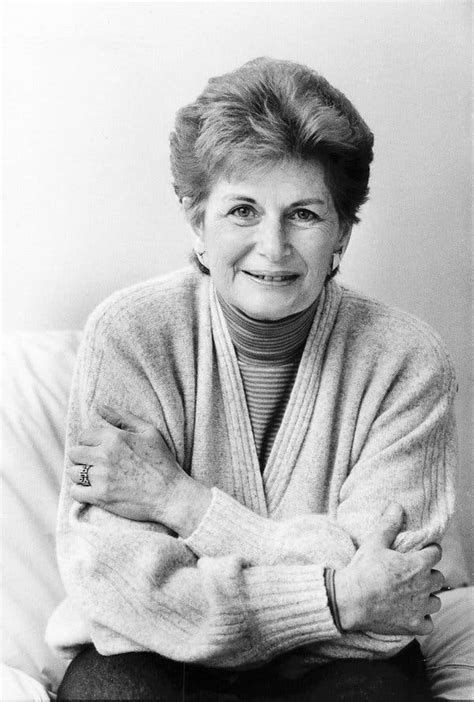A Quote by Marie Winn
The upshot of pervasive public belief in the uncontrollable sexuality of teenagers, and even of pre-teenagers, is that parents arehalf-hearted in their efforts to supervise and control their children, even when they are filled with anxiety as to their children's ability to cope with a full-fledged sexual relationship. "How can we buck the tide?" parents say helplessly, often without making quite certain that the ocean they see is a real one and not a mirage.
Related Quotes
I have to object to this notion that children form their sexuality and their sexual identity from their parents. The truth is that scientists, biologists, we don't know how sexuality is formed in people. And to suggest that people are going to be gay if they're raised by gay parents is just scientifically unfounded.
When parents see their children's problems as opportunities to build the relationship instead of as negative, burdensome irritations, it totally changes the nature of parent-child interaction. Parents become more willing, even excited, about deeply understanding and helping their children. . . . This paradigm is powerful in business as well.
Does sex education encourage sex? Many parents are afraid that talking about sex with their teenagers will be taken as permission for the teen to have sex. Nothing could be further from the truth. If anything, the more children learn abour sexuality from talking with their parents and teachers and reading accurate books, the less they feel compelled to find out for themselves.
Even today . . . experts, usually male, tell women how to be mothers and warn them that they should not have children if they have any intention of leaving their side in their early years. . . . Children don't need parents' full-time attendance or attention at any stage of their development. Many people will help take care of their needs, depending on who their parents are and how they chose to fulfill their roles.
One can tell a child everything, anything. I have often been struck by the fact that parents know their children so little. They should not conceal so much from them. How well even little children understand that their parents conceal things from them, because they consider them too young to understand! Children are capable of giving advice in the most important matters.
Place the lives of children in their formative years, despite the convictions of their parents, under the intimate control of experts appointed by the state, force them to attend schools where the higher aspirations of humanity are crushed out, and where the mind is filled with the materialism of the day, and it is difficult to see how even the remnants of liberty can subsist.
Parents who are cowed by temper tantrums and screaming defiance are only inviting more of the same. Young children become more cooperative with parents who confidently assert the reasons for their demands and enforce reasonable rules. Even if there are a few rough spots, relationships between parents and young children run more smoothly when the parent, rather than the child, is in control.
You must learn to look at people who are angry with you straight in the eye without getting angry back. When children see their parents treating them this way, they then recognize the parents' authority. It speaks louder than words. Their new respect for the parents is as good for them as it is for the parents. It never works to demand respect of children. It must be given willingly as a result of strength of good character in the parents, which is manifested by their non-reaction to stress in the children.
The authoritarian child-rearing style so often found in working-class families stems in part from the fact that parents see aroundthem so many young people whose lives are touched by the pain and delinquency that so often accompanies a life of poverty. Therefore, these parents live in fear for their children's future--fear that they'll lose control, that the children will wind up on the streets or, worse yet, in jail.
There’s a belief now that the problem with our schools is parents, that if we just had better parents we would have better performing kids and, therefore, we wouldn’t have a problem at all. But what’s missing in that equation is that you do have a lot of parents in this country who are very involved in their children’s education and who do want something better. They want to see better for their kids. They know that they’re in schools that aren’t performing particularly well and if you look at how we treat those parents, it is quite poorly.
































